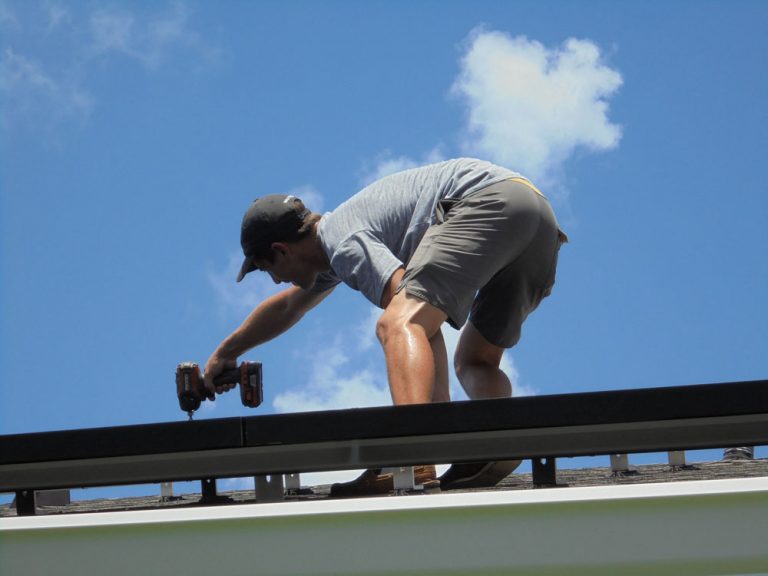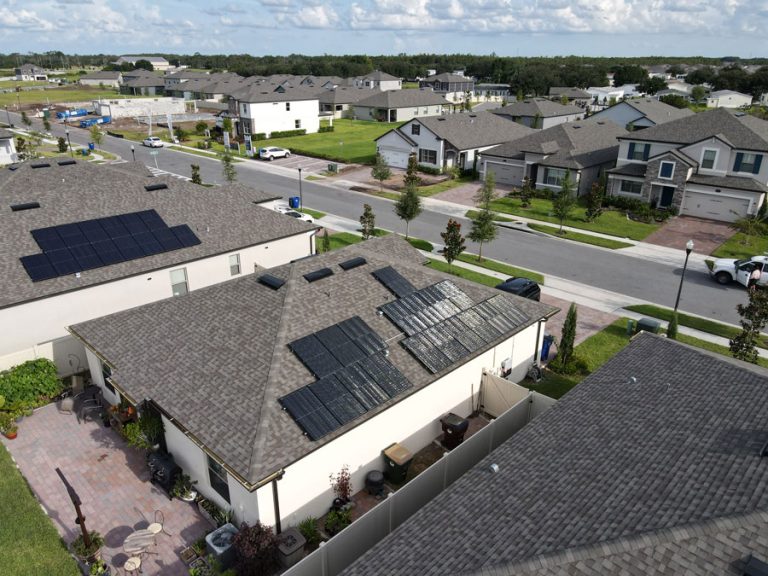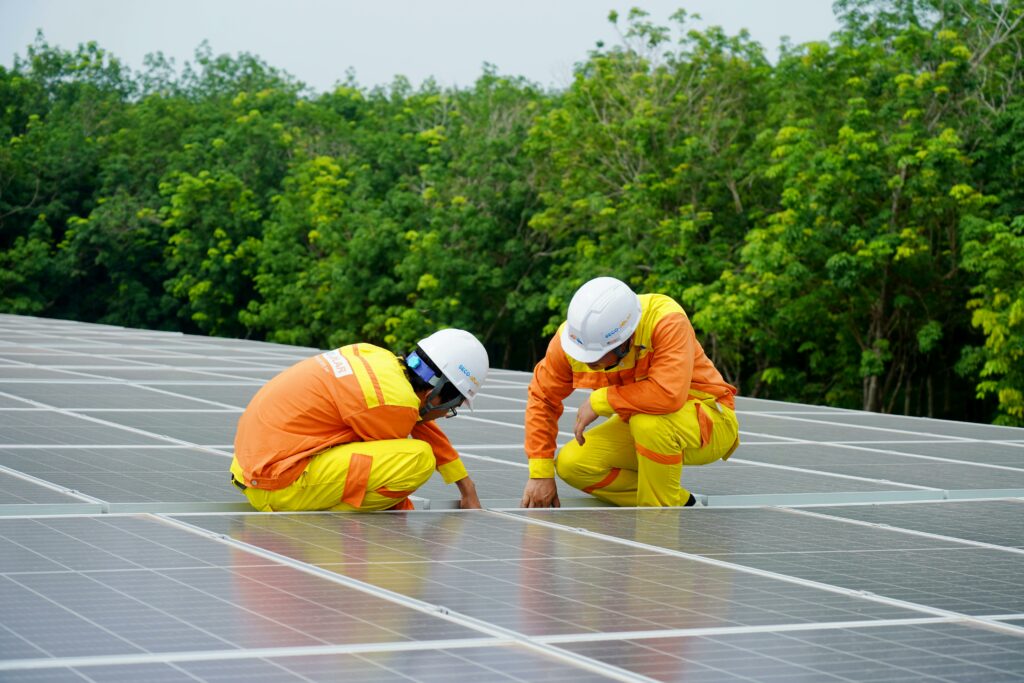
As solar technology gains popularity, homeowners must separate fact from fiction when considering this sustainable energy source. Many misconceptions surround this topic.
Whether you’re deterred by concerns about climate compatibility, costs, or maintenance, we’re here to shine a light on the truth.
This knowledge will help you make informed decisions about residential solar panels and pave the way for a brighter, greener future.
1. Solar Panels Don’t Work in Cold or Cloudy Climates
A common myth suggests that solar panels are ineffective in cold or cloudy climates, but this couldn’t be further from the truth. To understand why, let’s revisit the basics of solar energy:
- Solar panels generate electricity from light, not heat. This means that even on cold or overcast days, solar panels can efficiently convert available sunlight into energy.
- Colder temperatures can improve panel performance, as excessive heat can reduce their
- Efficiency. A look at countries like Germany, a leader in solar energy despite its cloudy weather, further dispels this myth.
- Advancements in photovoltaic technology have enhanced solar panel sensitivity, enabling them to harness even diffuse sunlight on cloudy days. Thus, regardless of the climate, solar panels remain a viable and effective option for residential energy needs.
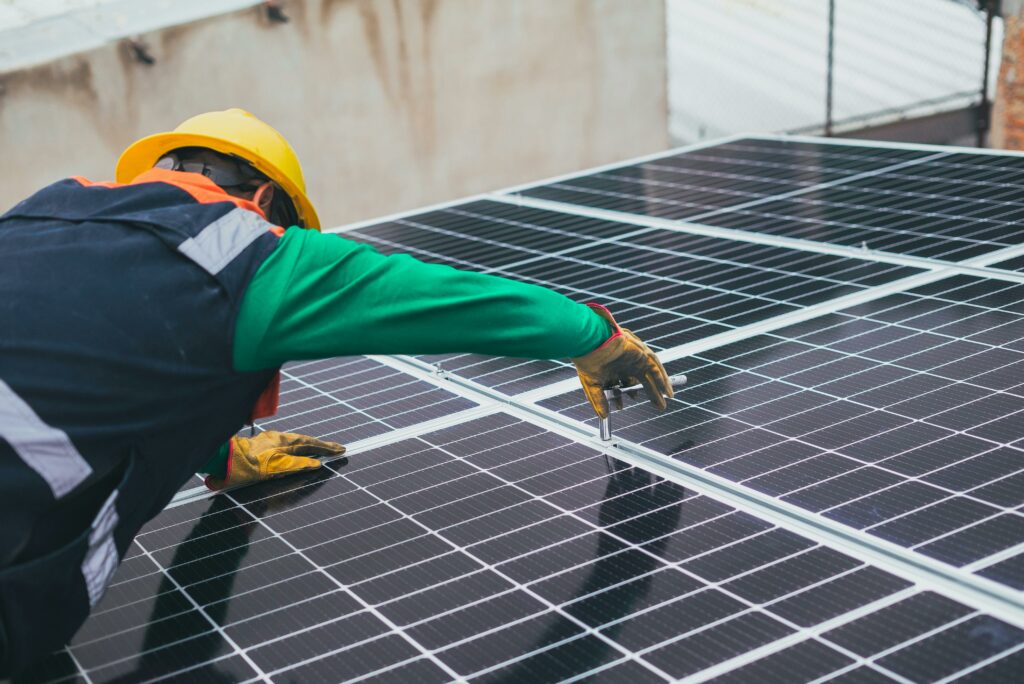
When properly installed and maintained, residential solar panels are a high ROI investment
2. Residential Solar Panels Are Excessively Expensive
The perception of residential solar panels as prohibitively expensive is another widespread misconception. While the initial investment may appear significant, it’s important to consider the long-term financial benefits of residential panels. These systems can substantially reduce monthly electricity bills, sometimes even to zero, depending on the energy production and consumption.
Likewise, homeowners can take advantage of various government incentives, tax credits, and rebates designed to offset the initial costs of installation. These financial aids significantly lower the barrier to entry.
Over time, the savings on energy costs can completely cover the initial outlay. It’s also worth noting that solar panels typically increase the resale value of a home, making them a smart investment. As a result, solar energy often emerges as the more
economical choice in the long run.
3. They Require High Maintenance
Contrary to the belief that solar panels demand high maintenance, they are one of the lowest maintenance systems you can install in your home. Solar panels are designed with durability and longevity in mind, requiring minimal upkeep. Typically, the primary maintenance task is keeping them clean, ensuring they are free of debris, such as leaves or dust, which might slightly impede their efficiency. This is often as simple as an occasional cleaning with water and a soft brush.
In addition, most solar panel systems have long-term warranties, some extending up to 25 years, guaranteeing performance and reliability. The absence of moving parts in these panels significantly reduces the risk of wear and tear, making them less prone to malfunctioning.
Thus, their upkeep is both manageable and economical.
4. Solar Panels Will Damage Your Roof
A common fear among homeowners is that installing solar panels will damage their roofs. However, this concern is largely unfounded. When installed correctly by professionals, solar panels can protect and preserve the part of the roof they cover. The installation process involves securing the panels with a mounting system designed to have minimal impact on the roof’s integrity. These systems are typically attached to the roof rafters, ensuring stability and reducing potential damage.
Solar panels also shield the roof from environmental elements like rain, snow, and UV rays, potentially extending its lifespan. It’s crucial to have a thorough roof inspection before installation to ensure that the roof can support the panels. That way, the risk of damage from solar panels is remarkably low.
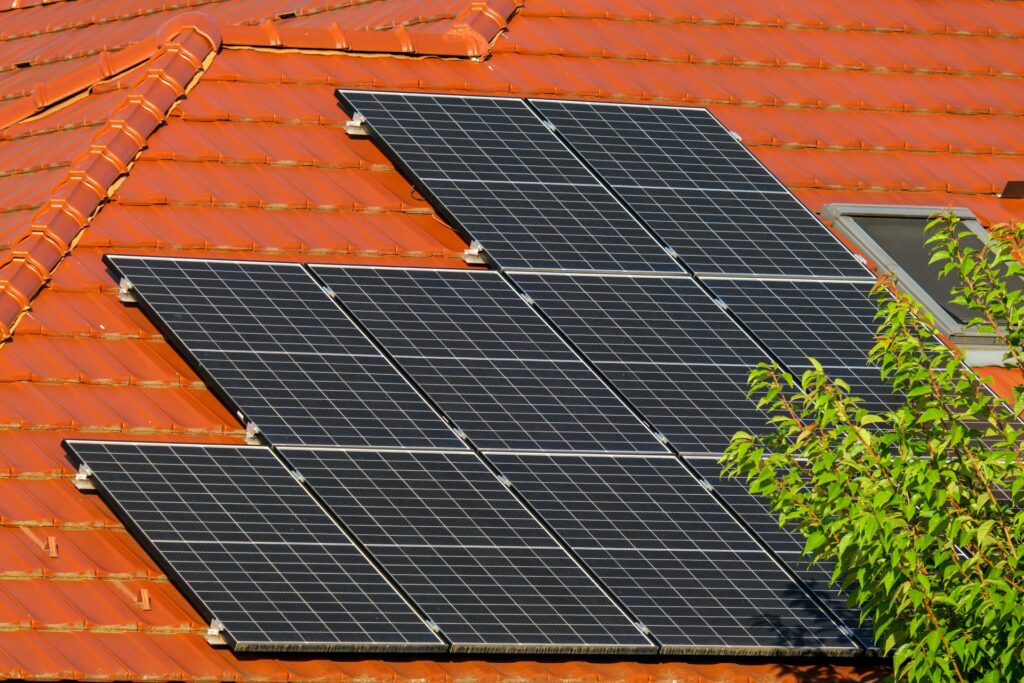
Residential solar panels will protect your roof, not damage it
5. Solar Energy Is Not Really Environmentally Friendly
The misconception often arises from concerns about the manufacturing and disposal process of solar panels. While it’s true that producing solar panels requires energy and resources, the environmental impact must be assessed over the entire lifespan of the panels.
Once installed, solar panels produce clean, renewable energy for many years, typically about 25 years, without emitting greenhouse gases. This long-term generation of sustainable energy significantly outweighs the initial environmental costs of production.
What’s more, the solar industry is continually improving recycling methods to manage end-of- life panels more sustainably. The shift to solar energy significantly reduces reliance on fossil fuels, lowering carbon footprints and contributing to a cleaner, greener planet.
6. They Will Make Your Home Difficult to Sell
The idea that homes with solar panels are harder to sell is a misconception that doesn’t hold up against current real estate trends. On the contrary, solar panels can be a significant selling point. In fact, solar installations are now viewed as the most desirable enhancements, and homes equipped with them often sell more quickly and at elevated prices.
Especially in the top states for solar energy, including California and Florida, solar-equipped homes are becoming increasingly desirable due to their energy efficiency and lower electricity costs. The prospect of reduced energy bills and a smaller carbon footprint often attracts potential buyers.
With growing environmental awareness, there’s an increasing appreciation for sustainable living solutions. Sellers must properly convey the benefits of solar panels to prospective buyers, including the transfer of warranties and any ongoing incentives. Therefore, solar panels can enhance a home’s marketability rather than being a hindrance.

Solar solutions add value to your home
7. You Can Easily Go Off-Grid with Solar Panels
Many believe installing solar panels is a straightforward ticket to going off-grid, but the
reality is more complex. Understanding the differences between systems is crucial to get the most out of your solar project. Transitioning to an off-grid system requires significant planning, investment, and adjustments to energy usage.
It typically involves a substantial solar panel array coupled with a robust battery storage system to ensure power availability during periods without sunlight. This setup can be costly and requires careful sizing based on the household’s energy needs. For most homeowners, a grid-tied system is more feasible, providing the stability of the grid and the ability to sell back
excess power.
Solar Panels: Illuminating the Truth
Dispelling common misconceptions about residential solar panels is essential for informed decision-making. Solar panels offer numerous benefits, from their effectiveness in various climates to their affordability and low maintenance. Understanding these facts allows homeowners to embrace solar energy confidently, contributing to a sustainable future while enjoying the perks of modern solar technology.
Discover the truth behind residential solar panels as we debunk the most common
misconceptions and guide you toward a greener future!

